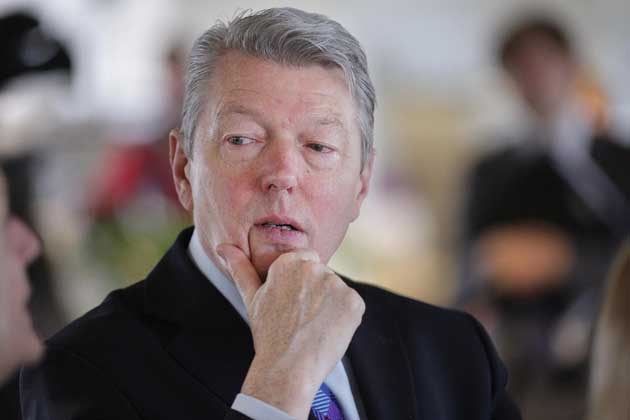How Johnson became the model Labour candidate for the top job

Your support helps us to tell the story
From reproductive rights to climate change to Big Tech, The Independent is on the ground when the story is developing. Whether it's investigating the financials of Elon Musk's pro-Trump PAC or producing our latest documentary, 'The A Word', which shines a light on the American women fighting for reproductive rights, we know how important it is to parse out the facts from the messaging.
At such a critical moment in US history, we need reporters on the ground. Your donation allows us to keep sending journalists to speak to both sides of the story.
The Independent is trusted by Americans across the entire political spectrum. And unlike many other quality news outlets, we choose not to lock Americans out of our reporting and analysis with paywalls. We believe quality journalism should be available to everyone, paid for by those who can afford it.
Your support makes all the difference.Alan Johnson has been here before. The last time, infuriatingly for his most admiring supporters, he stepped back from the opportunity to challenge Gordon Brown for the heart of the Labour Party.
Now, however, after his failure to beat Harriet Harman for the deputy leadership in 2007 and – more significantly – the fact that many feel the party's very future is now in peril, the Health Secretary may finally be ready to pitch for the top job.
He is a peculiar politician: an affable man with complete control over his own ego, who has risen close to the top of British politics. He is a throwback to a time when union barons could move into politics through the Labour Party. A former joint general secretary of the Communication Workers Union, Mr Johnson is, in fact, the first former union leader in 40 years to become a cabinet minister. More remarkably, in a time of professionalised politics and machine politicians, he did not go to university.
He was a grammar-school boy who was orphaned at 12 and brought up by his elder sister in a council flat; a wannabe rock star who actually cut a record, and a shelf-stacker who became a postman. In short, Johnson, who had three children by his early twenties, boasts much of the "common touch" that his colleagues claim David Cameron lacks.
But he is not quite the working-class hero that many on Labour's left wing crave. As a union leader, Johnson was a moderniser in the Blairite mode and the only union leader to support Tony Blair in his campaign to abolish Clause IV.
In 2007, when he briefly emerged as Gordon Brown's most likely rival, Johnson dismissed the idea of becoming prime minister as similar to "putting the Beagle on to Mars – a nice idea but doomed to failure". It remains a nice idea, but its chances of success have suddenly taken off.
Join our commenting forum
Join thought-provoking conversations, follow other Independent readers and see their replies
Comments